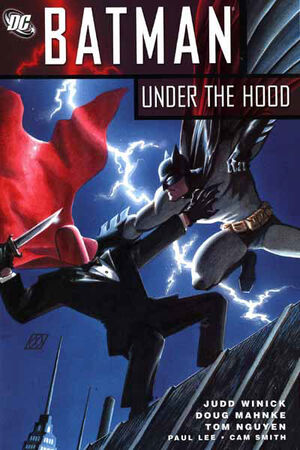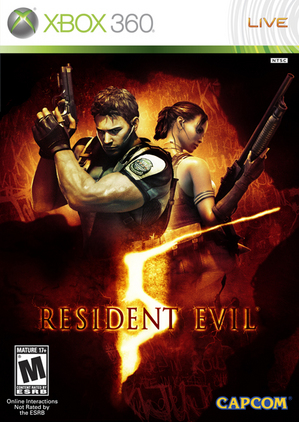 Writer: Judd Winick
Writer: Judd WinickArtists: Doug Mahnke, Paul Lee, Matt Wagner (covers)
Collects: Batman #635-641
This is a big one. There's no debating this story is controversial because of what it proceeded to do. Some are absolutely unable to look past the consequences of this story and for that they hate it. That's not entirely fair, but it can be understood; this storyline treads on some ground that was sacred for about twenty years previous. But if it leads to a great story, there should be no sacred ground in comics; Ed Brubaker proved it with Captain America and Judd Winick proved it with this, Under the Hood.
The story is about many things, but the past is probably front and center here. Many things from the past of the Dark Knight come back to haunt him here. It starts with the new player in Gotham, the Red Hood; it's a moniker that carries no small weight in Batman lore and it's not where the familiarity ends. What commences is the start of all out war between the Red Hood and Gothams current Crime Boss, the Black Mask, with Batman in the middle. By the end of the volume, the fight becomes so much more than that; the stakes for Batman become very personal as the landscape for Gotham begins to shift.
On the surface, that doesn't sound like a noteworthy synopsis, but as I mentioned, the story is about a lot of things. It's about death, life, the loss of family, the never-ending war, the ethics of Batman's moral code, a man struggling to make sense of what he suspects is occuring and most of all it's about a father-figure who has never been able to stop grieving for the loss of his own. The Batman we know at the start of this volume is one even more hardened than usual; he's yet again lost another to the war on crime, he's pushed away many of his allies, he's lost his hold on the Gotham mob and he's walled himself off. It's Batman at one of his grimmest, lowest points without making him overly Bat-jerkish. There's quite a bit going on here and most of it's interesting.
Another thing I like about this volume is how relatively self contained this story is. There are occasions where events from another book are alluded to - why Batman's standoffish with Zatanna, for example - but in most instances all of the information necessary is provided for you. Right down to the circumstances surrounding the deaths of the heroes Batman begins visiting halfway through. This is somewhat significant when you realize that this is a pretty major story and that most major stories since Knightfall have been huge, sprawling crossovers (a good half of which worked and half didn't, but we won't get into that). From here on, the Batman universe started to become a bit more self contained and ended up all the better for it.
Finally - and this is more a personal opinion - part of me looks to this story as something akin to the start of a new "Golden Age", if you will, for Batman. While this story - and many that follow - aren't everyones cup of tea, most of them are good to great and some to follow are destined to be classics. To me, it doesn't seem like Batman always found himself with runs like this in the past, so to me it's significant; it's great to be excited about what's coming for the Dark Knight seemingly at all times. It's all the more awesome when you realize Batman had only just recently been at one of his lower points; I'm speaking of War Games, of course, which was absolutely terrible.
To say I'm a Judd Winick fan would be a bit misleading. I've enjoyed some of his work and despised others. But since the first time I read this story, I've felt he had a particularly good hold on the Batman mythos and the denizens of Gotham. Everyone feels right from Batman - thankfully near the end of his uber grim and gritty Batjerk stage - on down. Black Mask in particular is a treat; we get some dark humor through this character and I found many of the Black Masks lines to be standouts, enough so that I found it quite a shame when the events in Catwoman occured. The only character I'm not sure about is Mr. Freeze - in this storyline far more willing to slaughter and easier to irritate than I'm used to - but it's something that isn't hard to get past.
The art is quite good when Doug Mahnke is doing it. I'm not entirely sure on when and where the switches occur, but the credits list another artist and there are points where the artwork feels sloppier. So it's not overly difficult to put two and two together to hazard a guess on when the switch-offs happen. It's distracting but not enough so that it ruins things. For the most part, the arts strong from linework to colors. It serves the story well.
As a final note on the art, I'd like to point out the cool covers by Matt Wagner. Some of them even carry an "animated" look to them. Very good work that deserves mention.
The Score: 8.5 out of 10
There's a lot to love here. Just a well done Batman story that convinced me Judd Winick could do great work when on the right property. Treading sacred ground doesn't always feel this good. I recommend this for sure.


